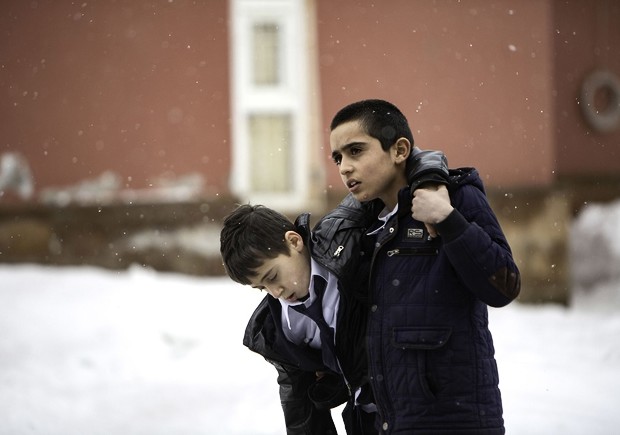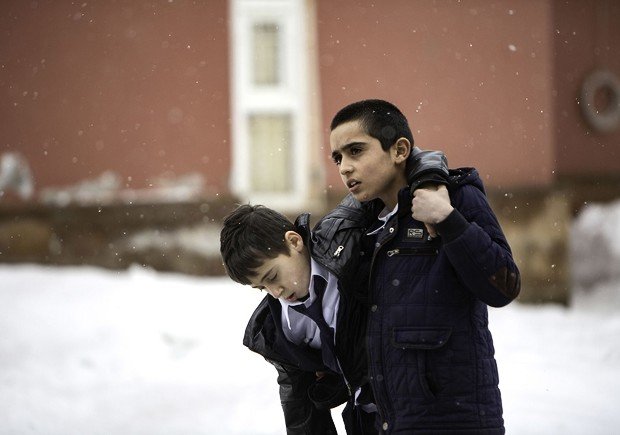CHENNAI: “Brother’s Keeper,” which was screened at the recent Berlin International Film Festival, draws on Turkish director Ferit Karahan’s childhood experiences in a boarding school ruled with an iron fist by disgruntled teachers.
In scenes reminiscent of a Dickensian horror, the cruelty heaped on the young boys appears harsh and brutal.
With works like “The Death of Black Horses” and “The Fall from Heaven” behind him, Karahan said in an interview: “I spent six years of my childhood at a boarding primary school. And the reason I wanted to make ‘Brother’s Keeper’ has a lot to do with the fears that remain with me from those days.
“Fear is as old as humanity itself. Schools are one of the places that most effectively perpetuate the tradition of spreading fear and using it as a disciplinary tool. At boarding schools in particular, these fears tend to be multi-layered.”
The punishment meted out to the boys in “Brother’s Keeper” can be hard to watch. With freezing temperatures and the school’s heating system broken, the building often resembles a detention center in which students are disciplined like prisoners.
Set in the remote Turkish region of Anatolia, the school is populated by Kurdish boys, with the brightest children from the province having been picked from a young age to become leaders. But the rigorous regime they endure on the way is frightening, and the apathy among the staff is horrendous.
It is in this scenario that Karahan, who co-wrote the screenplay along with Gulistan Acet, outlines the sweetly poignant friendship between two little boys, Yusuf (Samet Yildiz) and Memo (Nurullah Alaca).
When Memo falls ill and unconscious, Yusuf struggles to overcome bureaucratic hurdles. With unfeeling teachers, who are more interested in their own grievances than the boy’s condition, Yusuf tries to move mountains to fix the problem. In one extremely moving scene, he carries Memo to the school’s sick room through harsh, unrelenting snowfall.
The teachers blame one another for Memo’s plight, and guilt and remorse soon follow. With the sick room not having a nurse or medicine, Memo lies still with Yusuf watching over him helplessly. The ambulance is delayed traveling through roads buried under thick snow. Mobile telephones do not work, and the school doctor on call is too far away.
Karahan and cinematographer Turksoy Golebeyi capture the fear and anxiety so effectively that one feels present among the characters.
In contrast to the poetic cinema of celebrated Turkish director Nuri Bilge Ceylan, Farahan takes “Brother’s Keeper” into a dramatic direction, seething with repressed anger and a sense of hopelessness. But what is missing are convincing performances by the young cast.


